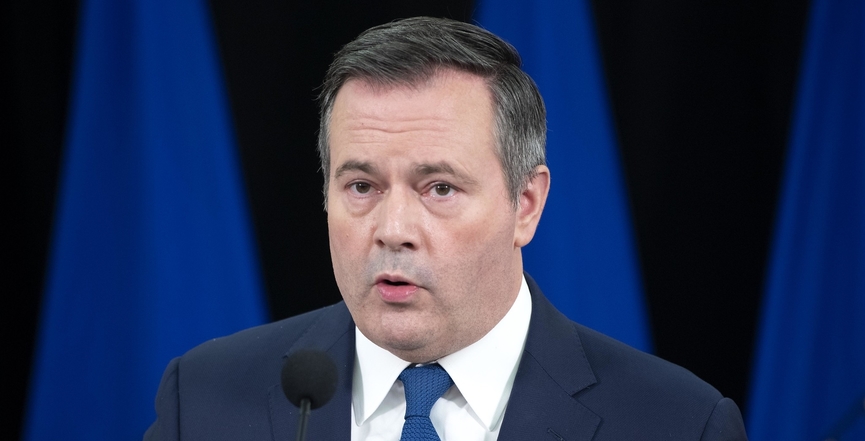It turns out the Kenney government’s pandemic response has been guided more by political pressure and right-wing ideology than science and expert advice.
For weeks, Premier Jason Kenney and his army of “issues managers” have claimed Alberta’s determined effort to keep its restaurants, bars and casinos open in the face of surging COVID-19 infections was based on the informed advice of the province’s chief medical officer of health, Dr. Deena Hinshaw, and other experts in epidemiology.
Suggesting otherwise brought swift accusations from United Conservative Party government spokespeople and their online echo chambers that critics were trying to undermine the sound counsel provided by Hinshaw, or even attack her personally.
Thanks to the revelations yesterday by CBC Edmonton’s investigative reporters, the curtain has been jerked back on how Premier Kenney, Health Minister Tyler Shandro and other cabinet members have been directing and interfering with Hinshaw’s response to the province’s dramatically worsening pandemic crisis.
The political interference was revealed in 20 audio recordings of Emergency Operations Centre planning meetings that somehow found their way into the hands of reporters Charles Rusnell and Jennie Russell. It sounds as if someone at the meetings of officials from Alberta Health and other ministries left their smartphone’s recorder running.
The CBC scoop summed it up this way:
“Taken together, (the recordings) reveal how Premier Jason Kenney, Shandro and other cabinet ministers often micromanaged the actions of already overwhelmed civil servants; sometimes overruled their expert advice; and pushed an early relaunch strategy that seemed more focused on the economy and avoiding the appearance of curtailing Albertans’ freedoms than enforcing compliance to safeguard public health.”
To her discredit, Hinshaw appears to have been OK with this. According to a source quoted in the story, she was afraid things could get worse for Albertans if she were replaced by someone more in sympathy with the premier’s ideologically driven micromanagement.
When the story broke yesterday morning, the government’s first reaction was to turtle.
Shandro cancelled a scheduled interview with CBC Calgary’s morning program about an hour before he was due to go on the air. Officials, including Hinshaw, didn’t return reporters’ phone calls.
But UCP “issues managers” were soon busy on social media, working hard to spin the story into a bitter debate about whether the unidentified leaker was a whistleblower or a perfidious traitor undermining the operations of orderly democratic government.
This is an interesting topic for discussion, but it may not be the issue that ought to be at the top of the agenda, seeing as Alberta, with only 4.4 million people, now has the highest number of active cases of COVID-19 any province in Canada, including Ontario with a population of 14.6 million.
But it seemed to work for the government, and by the time her afternoon COVID-19 briefing rolled around, Hinshaw was complaining the leak was a “personal betrayal” and “a violation of the public service oath and code of conduct.” She claimed to have been “taken out of context” in the CBC report, and said an internal investigation will be launched to track down the leaker.
UCP outrage at the leak appeared to be driven as much by partisanship as principle, at least if we go by the reaction of the same actors to similar leaks when other political parties are in power.
It certainly would have been hard to find a Conservative unhappy about former Liberal federal minister Jody Wilson-Raybould secretly recording telephone conversations with Canada’s top civil servant in December 2018.
Nor were there any conservative tears back in 2016 when someone in the Alberta civil service leaked a negative forecast to a friendly newspaper that suggested the NDP’s climate action plan “could lead to 15,000 fewer jobs, a $4-billion drop in household income, as well as lower corporate profits, oil exports and overall economic activity.”
But political ethics, apparently like evidence-based advice on how to deal with a pandemic, seem to be situational as far as Alberta conservatives are concerned.
Well, the UCP is entitled to be worried by this development if there’s anything to the Environics Research poll yesterday that showed that 47 per cent of decided Alberta voters would now vote for a return of Rachel Notley’s NDP, compared with 40 per cent who would vote to keep the UCP.
Another poll by the same firm released the day before indicated strong opposition to the UCP’s health-care policies.
The polls were commissioned by the Canadian Union of Public Employees’ Alberta section, which led government spokespeople to dismiss them as biased. One suspects, however, that Environics, a pretty respectable polling company, would take issue with that characterization.
In conclusion, alert readers will recall how the UCP strategic communications brain trust promised to respond to Rusnell’s and Russell’s calls for comment on another scoop last October, then reneged and handed a more positively spun version of the story to a competing media organization.
That is not best public relations practice. It might have seemed like a good idea at the time. The fact the government doesn’t seem to have had very much time to figure out how to respond yesterday, though, illustrates why.
David Climenhaga, author of the Alberta Diary blog, is a journalist, author, journalism teacher, poet and trade union communicator who has worked in senior writing and editing positions at The Globe and Mail and the Calgary Herald.
Image: Alberta Newsroom/Flickr



